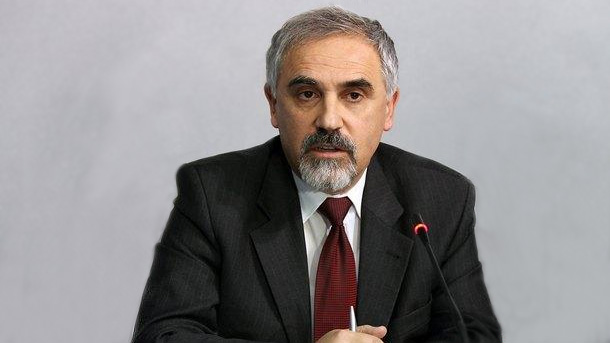Ours a century of radical change, said Vice President Margarita Popova at a forum dedicated to “The future of European diplomacy”.
“The manager of yesteryear is not in a capacity – in terms of knowledge, experience, ethics even – to look ahead to our present historical day or rearrange it in the collective minds of human society in the order of freedom, security and democracy,” she says. “The debate today is of a new world that we need to fathom and renounce the instruments we have been using to govern – the insipid and washed out clichés that have been lost through the years but which once served the interests of some, stripping them of sin and morals, but were a burden to others.”
Conflicts only seem to be territorially confined, but are capable of kindling a global ruination, the analysis goes on. The reactions are not adequate to the situation, we miss an intelligent and dedicated leadership, based on knowledge, experience and commitment to public weal, Vice President Popova said. She added that buried under dozens and hundreds of strategies and programmes for economic prosperity and wellbeing, the international community must now wake up to the greatest evil of all – violence, war, destruction that has come to take the place of creation.
“Unfortunately, man is not born judicious or predisposed to a peaceful compromise and common sense, as Henry Kissinger had hoped for the Americans,” Margarita Popova goes on to say. “Even though democracy, peace, justice have become a shared pursuit, again as Kissinger put it, though not a universal reality. He adds that Europe is yet to attain the attributes of statehood, whereas foreign policy is trying to reconcile conflicting national objectives with ideals of a world order.”
According to Bulgaria’s Vice President, no single European idea can come to pass before Southeast Europe has become familiar ground and before it is accepted for what it is.
“We hastened to draw lines of division between periphery and concentric circles – the monetary union, migration, Schengen, which affect Bulgaria and Romania. Southeast Europe is part of the old continent,” she says.
 The forum was attended by career diplomat Lyubomir Kyuchoukov, chair of the Economics and International Relations Institute. Here is what he said for Radio Bulgaria:
The forum was attended by career diplomat Lyubomir Kyuchoukov, chair of the Economics and International Relations Institute. Here is what he said for Radio Bulgaria:
“It has been four years since the US secretary of state, whoever he or she may be, has been working in a kind of comfort Henry Kissinger could only have dreamed of 30 years ago,” he says. “With a direct connection to Brussels when he wants to be informed of the EU’s position on a given foreign policy issue. When the post of High Representative of the Union for Foreign Affairs and Security Policy and the European External Action Service were set up, the EU took the only step possible, at this stage, towards coordinating the foreign policy positions of the member countries and articulating a single stand on any given issue. This should by no means be mixed up with a single, union or community foreign policy. In general, foreign and security policies are not part of community policies and are exclusively within the bounds of the individual states’ powers. This means there is coordination but no single foreign policy. Most analysts, especially those who focus on security and international relations are apt to view this as a weakness. I would say that in this weakness there is strength. The EU positions never go to an extreme, in the process of consultations the sharp edges are smoothed out and the decisions bear the markings of “soft power’. This often means it is capable of being sufficiently efficient in tackling problems, based on the political weight the 28 members carry having once coordinated their positions.”
Where does Bulgaria stand in all this? Lyubomir Kyuchoukov:
“Unfortunately we are more of an attendee than a participant, especially over the past five years,” he says. “Bulgaria failed to live up to the expectations of its EU partners or to play an active role based on the available expertise, positions and contacts in forming community positions in the Balkans, the Black Sea region or the post-Soviet area. Over long periods we turned our back to these regions politically, though not at an expert or diplomatic level. We are no longer a factor in the discussions of the EU positions on these issues but seem happy to tag along. As a result other countries have been losing interest in our positions, which was certainly not the case at the beginning of the democratic changes, for example during the crisis in the Western Balkans, Kosovo, etc. Even when President Bush landed in Sofia, he landed with the words: “I come to ask of Bulgaria’s position on Kosovo.” And that was not mere courtesy. Evidently, there can only be a turnabout when we start saying: we, the EU, and not they, the EU."
English version: Milena Daynova
Calin Georgescu to run for President of Romania Romanian police seized weapons and large sums of money in the investigation against pro-Russian former presidential candidate Calin Georgescu. 25 kg of gold, more than 3.3 million dollars, 43 000..
"The 'Zhelyazkov' cabinet must continue to work, even as a minority government." This was GERB leader Boyko Borissov's comment on the Constitutional Court's decision to order the Central Election Commission to recalculate the results of the..
Călin Georgescu remains the favorite for the presidential election in Romania Călin Georgescu, who won the annulled first round of the presidential elections in November 2024 as an independent candidate, remains the..
Calin Georgescu to run for President of Romania Romanian police seized weapons and large sums of money in the investigation against pro-Russian..

+359 2 9336 661
